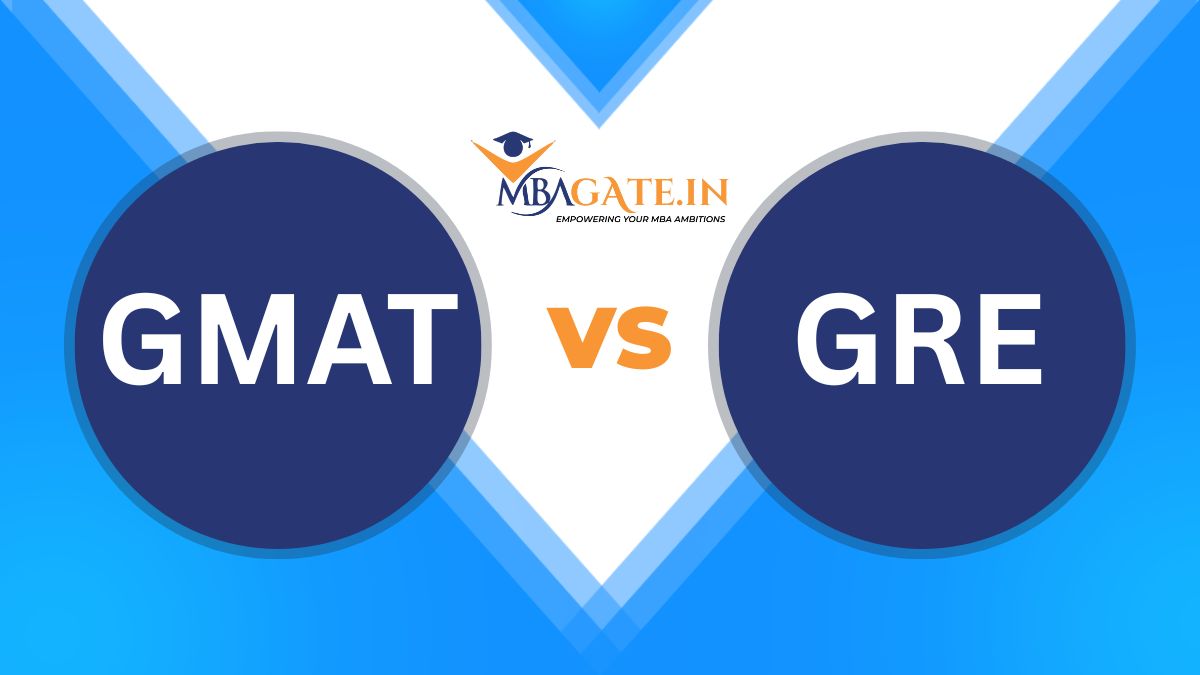GRE vs GMAT
Table of Content
-
- + more items Show less
GRE vs GMAT: Which Test Should MBA Aspirants Take?
Most graduate business schools when accepting applications expect applicants to provide standardised test scores. A lot of schools offer candidates a choice of submitting GRE or GMAT scores. Such scores complement other elements such as academic background, work experience and interviews to assess applicants preparedness for their programs.

Chief Differences Between GRE and GMAT
The primary distinction is the schools that accept these tests. While the GMAT is accepted primarily by business schools for MBA and associated programs whereas the GRE is accepted more widely across several different graduate fields including management. Also the sections and duration of the both the exams differs. Here's a brief comparison of the two tests:
GMAT vs GRE: Eligibility
GRE Eligibility:
Those who want to sit for the GRE there is no criteria for age limit or required educational background. However, test-takers are required to carry passport as proof of their identity on the day of the GRE exam.
GMAT Eligibility:
The aspirants who want to sit for the GMAT exam must be minimum 18 years of age. Those under age criteria will need written permission from a parent or guardian. Just like the GRE exam the aspirants of the GMAT exam does not require any specific degree or work experience in order to be eligible.
In short, both exams are open to with just a few basic conditions.
GMAT
The Graduate Management entrance Council (GMAC) administers the GMAT which is designed specifically for entrance to business schools. It tests skills such as data analysis, logical reasoning and verbal reasoning that are crucial in business management jobs.
GMAT Structure
Quantitative Reasoning tests decision-making using algebra and arithmetic (calculator-free).
Verbal Reasoning assesses critical thinking & reading comprehension.
Data Insights provides graphs and data sets that test decision-making.
Test-takers can take the GMAT a maximum of five times in 12 months and may respond to sections in any order.
GRE
The GRE organised by ETS (Educational Testing Service) is utilised by graduate and business schools globally. It assesses general academic preparedness in verbal, quantitative and writing sections.
GRE Format
Analytical Writing features a single writing topic assessing argument-construction skills.
Sentence completion, reading comprehension, and vocabulary are all covered in verbal reasoning.
Quantitative Reasoning consists of algebra, geometry and data analysis using an on-screen calculator.
The GRE permits candidates to take the test a maximum of five times during a year and they may also select the test scores which they want to send to schools.
Which Test is Less Difficult?
Among the two exams i.e GMAT and GRE which one is difficult, it solely depends on the candidates strengths and weaknesses:
The math section of the GRE is most often found to be easier and comes with a calculator.
The GMAT has more logical quantitative questions.
The GRE's verbal section is more vocabulary-heavy and the GMAT is focused on grammar and sentence construction.
How to Choose GRE or GMAT
Candidates must consider the following:
Academic Objectives: If one is applying solely to MBA degrees, the GMAT may be preferred. If one maintains other graduate degrees as an option the GRE is best.
School Preferences: One must see if the desired school accepts both scores or prefers the GMAT.
Personal Strengths: Excellent math and logical ability skills suit the GMAT whereas fine writing and vocabulary abilities could suit the GRE better.
Career Plans: During the hiring process, some companies, particularly in the consulting or financial industries, may request GMAT results. Taking the GMAT early could be beneficial.
Conclusion
Both GRE and GMAT are highly regarded entrance tests for graduate business school. The majority of schools accept either of them now, so it comes down to which test demonstrates the abilities of the applicant better. Take practice tests in each and determine which one produces superior results before deciding is a good approach.
FAQs
The GMAT is mainly used for business school (MBA) admissions while the GRE is accepted for both MBA and other graduate programs as well.
Many top MBA colleges accept both but some may prefer the GMAT. It’s best to check each business school’s official website.
Yes, GRE is accepted for many types of master’s and doctoral programs other than management field.
The GRE is known for having more complex vocabulary especially in its verbal section.
If candidates are sure about applying only to business schools, the GMAT is a strong choice. But if they want flexibility for other programs too the GRE is a better option.
Yes. Both exams let the candidates decide which test scores to send to universities so they can show their best performance.









